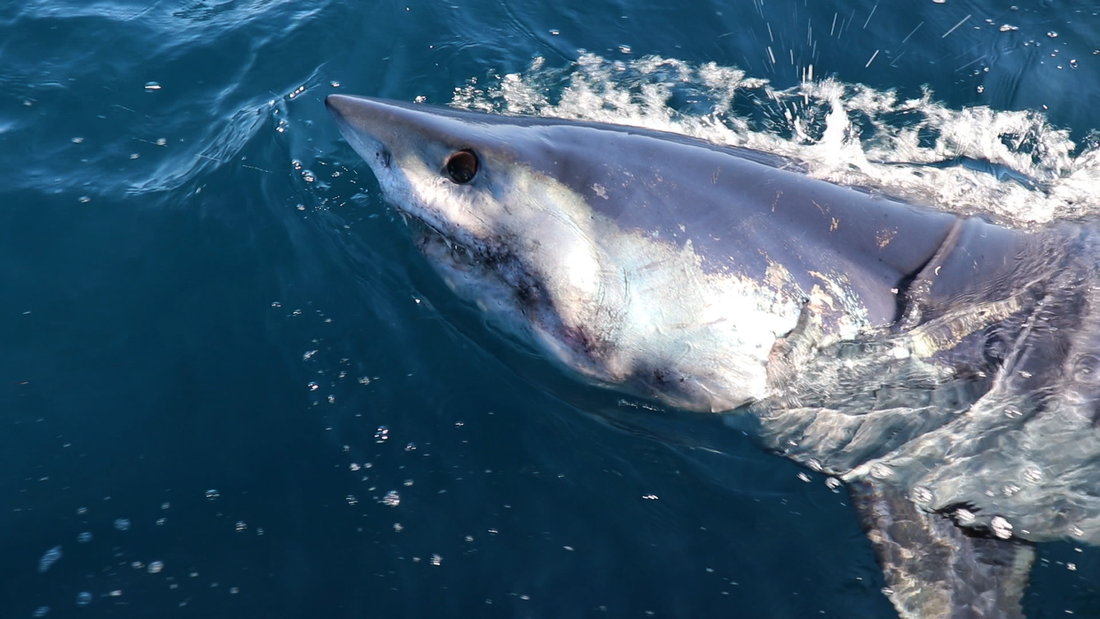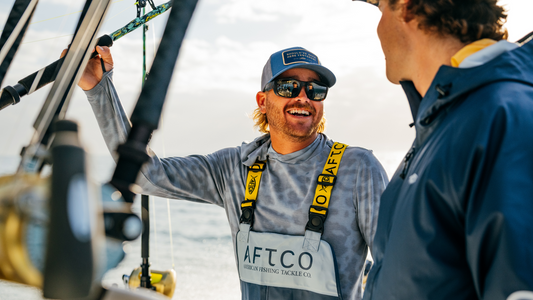
The Truth About the Shark Problem
Shark Depredation and Management: A Call for Better Data and Solutions
Written By: Ted Venker, CCA Conservation Director
Sharks generally have a hard time winning popularity contests among saltwater anglers, but they are a critical part of the marine ecosystem. As apex predators, they help maintain the balance of marine life by regulating populations of other species and keeping the entire aquatic chain in check. However, if you’re an angler, particularly in the Gulf or Southeast United States, you’ve likely noticed an increase in sharks devouring released fish or taking a fish right off a line.
An Increase in Shark Interactions With Fishermen
When sharks disappear, it impacts fisheries, coral reefs, and ocean health and the overall stability of ocean ecosystems. Yet, photos of the remains of chomped game fish are common on social media, and the incidents are fueling rising levels of angler frustration. I’ve attended fishery management council meetings all along the Gulf and South Atlantic coasts for several years, nearly every state has seen a significant increase in predation activity. Over the past five years, no council meeting is complete without mention of the “tax man” and multiple comments about shark depredation from recreational, charter, and commercial fishermen.
What is Threatening Sharks?
Let’s first look at the history of threats to sharks. Shark finning is a brutal practice that has been outlawed by many countries, including the United States. Nonetheless, illegal, unreported, and unregulated fishing (known as IUU fishing) on the high seas still kills an estimated tens of millions sharks annually.
IUU Fishing: Illegal, Unreported, & Unregulated Fisheries
Illegal, unreported, and unregulated fisheries are truly the bane of shark management (and many other finfish), especially for pelagic sharks that cross oceans for migration. As these species migrate, they’re targeted for their fins and meat or caught as bycatch by vessels operating outside the bounds of conventional international laws and regulations. These vessels operate in a shadow world of black markets and piracy, and often under extraordinarily dirty and dangerous conditions for the crews. While international efforts are constantly being made to improve surveillance of these vessels and deny their entry into ports to offload their cargo, they continue to have an enormous negative impact on global shark populations. While effective domestic regulations in places like the United States have brought some species back to near-normal population levels, a significant number of important shark species continue to be imperiled by IUU fishing.
Shark Finning
Shark finning has been and remains a real threat to shark populations. Once the sharks are caught and their fins are removed, their bodies are discarded back into the sea, where the sharks eventually die. The demand for shark fins is predominantly driven by China and other Asian markets for the delicacy of shark fin soup. Despite shark fins having little taste or real benefit, the texture of their fins and lore around its benefits unfortunately keeps demand high.
Shark Population Management Challenges - A Lack of Data
Sharks are long-lived, slow-reproducing species that require fine-tuned management, and NOAA has struggled to manage them effectively. Data-driven stock assessments for shark species are rare, making it challenging to implement science-based management plans. Without accurate data, it is impossible to ensure sustainable shark populations.

Martie is the female Shortfin Mako Shark pictured above. Tagged on March 19, 2018, she weighed an estimated 600+ pounds and was 10.1 feet long.
Can a Population Be Healthy in the US, But Not Elsewhere?
Fish ignore borders and boundaries, so even when they are properly protected in one region, some part of their range may cross into areas with little to no regulation, and even less enforcement. Identification is another challenge to effective management as some species of shark look remarkably similar and can be distinguished only by very subtle differences. It can be difficult even for marine scientists to readily recognize and differentiate a shark species that may be healthy enough to allow harvest from another that is struggling to recover. Species of note include:
- Shortfin Mako Sharks
- Oceanic Whitetip Sharks
- Blue Sharks
- Great Hammerhead Sharks
- Thresher Sharks
Is Shark Depredation Limited to Certain Species?
It is highly concentrated around certain species. Most depredation incidents involve coastal species that have rebounded in U.S. waters. Offshore species like makos and great whites are more common in tuna fisheries, while smaller sharks like sharpnose and bonnetheads are known to depart closer to shore. Dolphins can also be significant culprits of depredation in some areas.
Why Does it Feel Like the Shark Problem is Growing?
Shark encounters are more common, because some species of shark have populations that are now approaching “normal” for the first time in decades. Previously, overharvesting had driven populations to dangerously low levels, but stringent domestic regulations have produced recoveries for several species, particularly those that tend to stay relatively close to our shores. If it seems like there are more sharks than you’ve ever seen in your life, you are likely correct. But while some shark species have rebounded recently thanks to conservation efforts, other ocean-going species are still intensely harvested internationally – often illegally – and still have a long way to go before they can be considered recovered.
In the US, Are Sharks Learning How to Prey on Caught Fish?
Evidence suggests that sharks do learn how to find an easy meal over time. This behavior has been observed at fish-cleaning stations and during fishing activities. While the exact triggers, like engine noise, timing, or other cues, are unclear, sharks are intelligent with highly evolved sensory systems and known to capitalize on predictable food sources. It is common for anglers to relate stories of having to move after hooking a single fish, and then having sharks show up at the next spot within minutes. It is not difficult to imagine a shark learning to associate the sounds of boats and angling with the presence of struggling fish and easy meals.

The male Shortfin Mako Shark pictured above is named Bob Hayes. This 9.2 ft long, 330 lb shark was tagged off the Gulf of Mexico on February 24, 2021. This shark was named after Bob Hayes, a champion of marine conservation.
What's the Solution?
The solution is to not ignore the problem any longer. The sportfishing industry and recreational fishing community recently applauded the reintroduction of the SHARKED ACT in the U.S. House of Representatives as a starting place to addressing the issue.
The SHARKED Act
While anglers have not been quiet about the problem of shark predation, it has been difficult to figure out who in the federal government is responsible for coming up with a solution. Various departments within NOAA have tended to pass the buck on taking a leadership role, which only added to the frustration of anglers. To remedy that situation and create the path for a comprehensive effort, the recreational angling community has rallied to support the SHARKED Act which will create a task force which will:
- Work with fisheries management groups to address the problems posed by increased shark depredation
- Identify research and funding opportunities for improving the current conditions of shark depredation.
While the SHARKED Act does not offer an immediate solution, it is a critical first step in the right direction.
One Possible Solution: New Technologies
Through a SeaGrant-funded project, the Harte Research Institute for Gulf of Mexico Studies (HRI) at Texas A&M University-Corpus Christi is testing two promising technologies this summer:
These innovative tools aim to reduce shark depredation by deterring sharks. To determine if these new technologies are effective, they will be tested in several fishing environments, including headboats, recreational fisheries, and commercial fisheries.
Ultimately, More Data is Needed

Our partners at the Harte Research Institute for Gulf of Mexico Studies (HRI) are studying sharks through their Shark Researcher Tool and satellite tagging to learn more about their behaviors and how to protect them. AFTCO is proud to support this HRI effort and will be launching programs in the coming months to help with this effort.
A Solution is Needed & More Must Be Done
By improving our understanding of sharks and their behaviors, we can better manage these vital species, protect marine ecosystems, and address the concerns of the recreational and commercial fishing communities.





